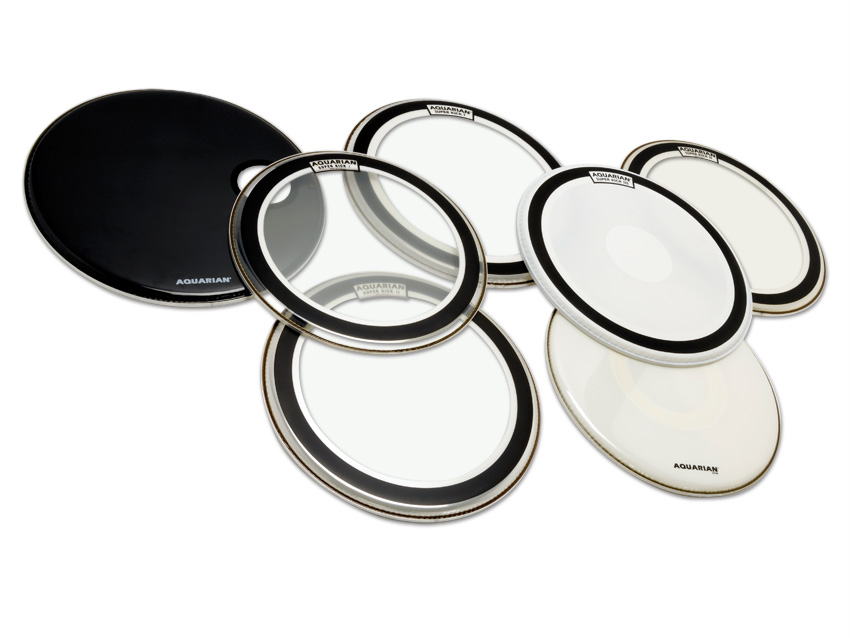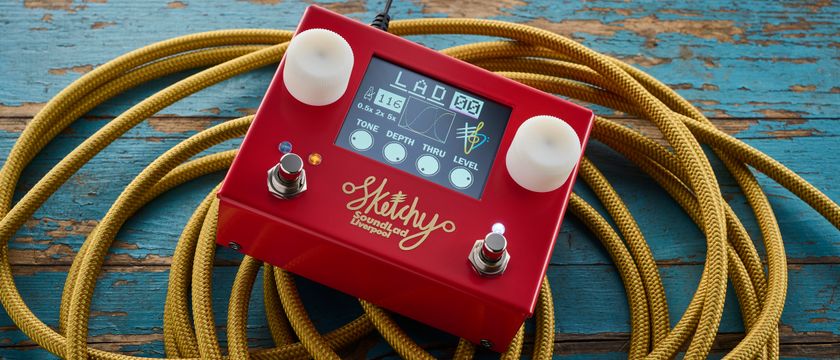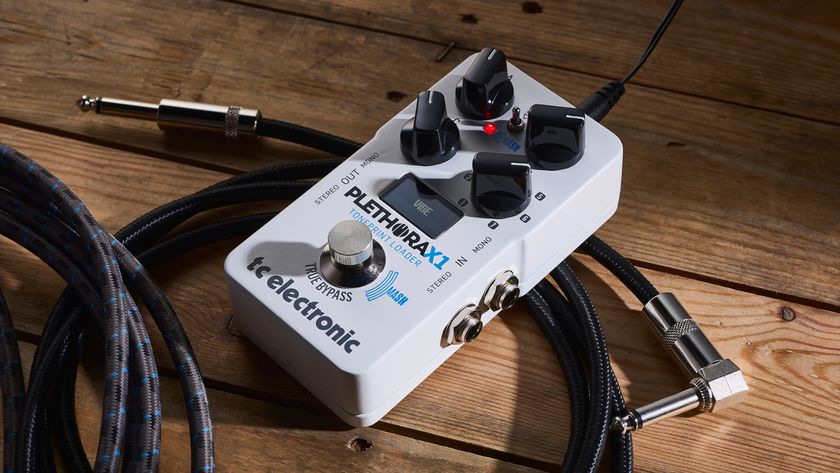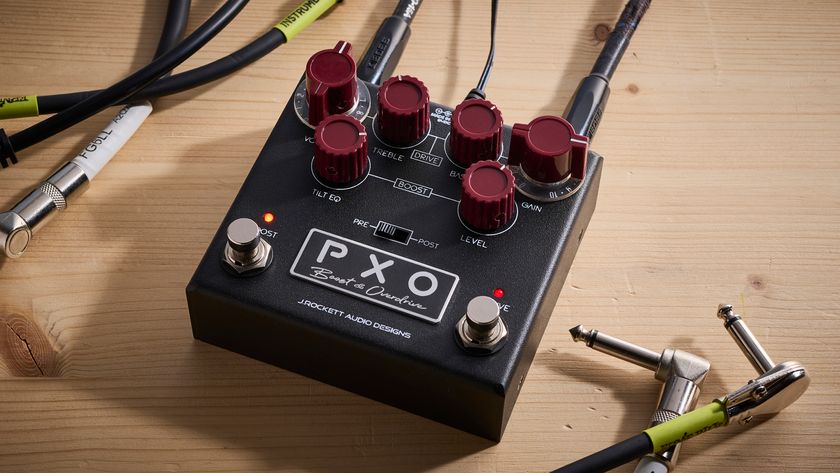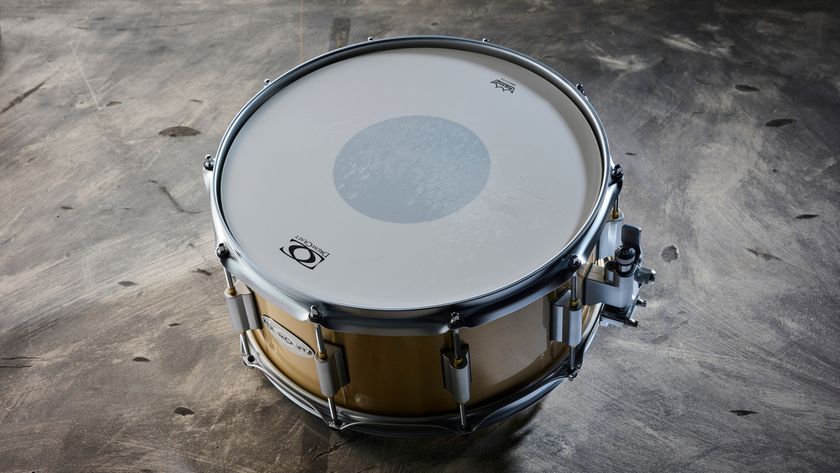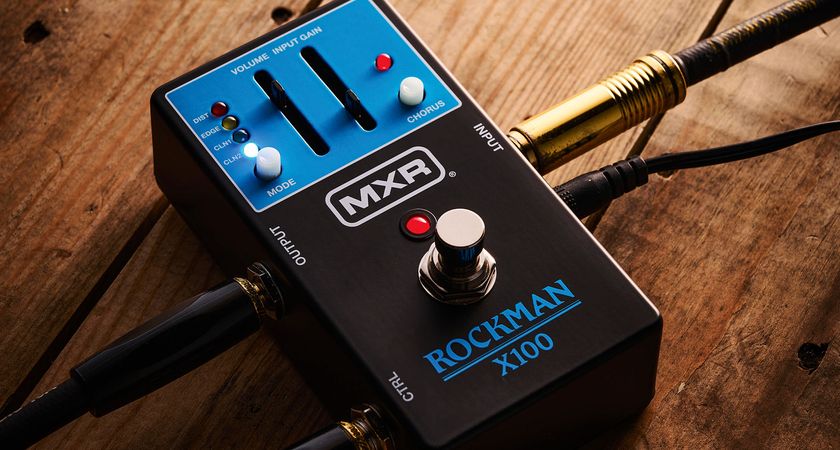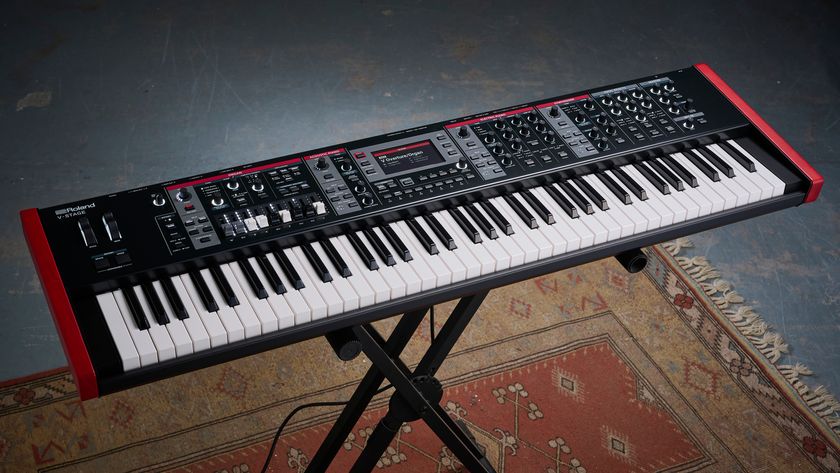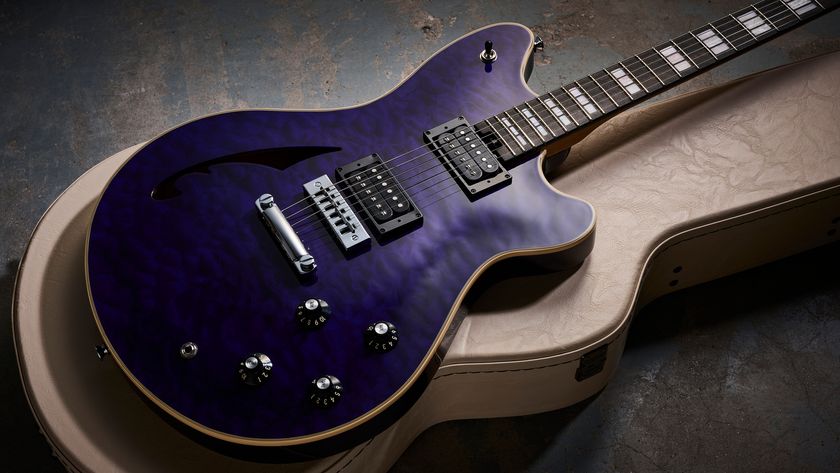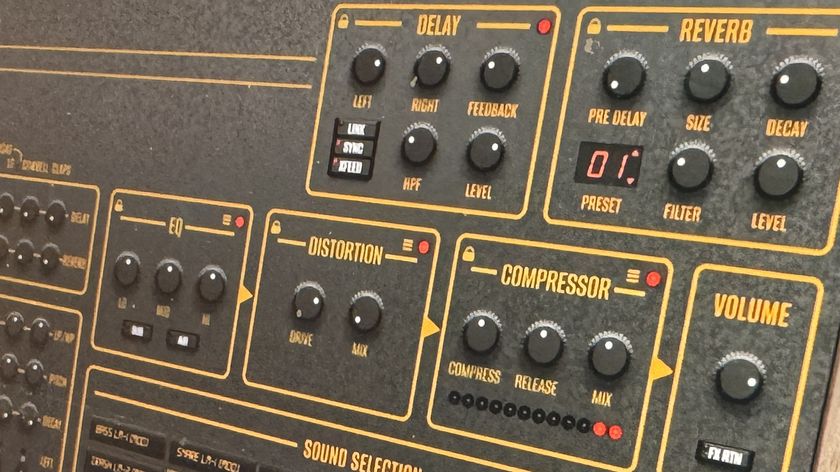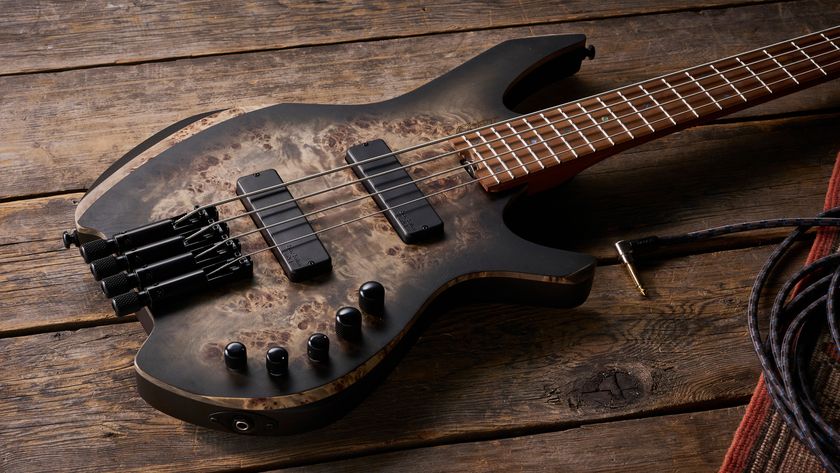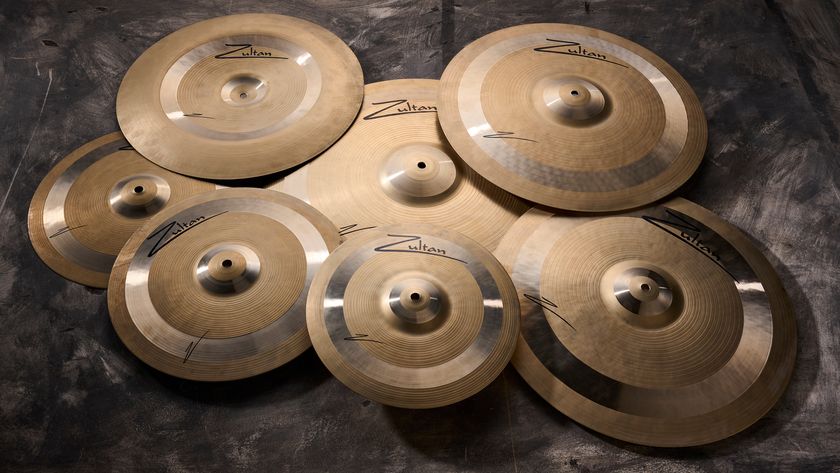MusicRadar Verdict
The Super-Kick I is one of the darkest, fattest kick heads we've encountered yet, but they won't suit everyone. They're not the best choice for bebop and they're probably too warm and funky for bullet-hard metal. For an all-rounder dabbling in rock, New Orleans funk, country and pop; they're heaven.
Pros
- +
Dark and fat with a full-on classic, vintage sound.
Cons
- -
Beboppers and hard metallers will be hard pushed to get along with them.
MusicRadar's got your back
Aquarian supremo Roy Burns was the original drum set clinician and a top big band player. So, even though Aquarian is widely seen as the third head company after Remo and Evans, you can be sure Aquarian products are drummer-friendly.
The Super-Kicks I, II and III are variations on Aquarian's popular bass head system and the Regulators are the perfect complementary front heads.
Build
The Super-Kicks and Regulators all feature Aquarian's patented Floating Muffling System. The unique aspect of this is the use of felt as a damping material, rather than the foam rubber that characterises the (roughly) equivalent heads of Remo and Evans.
The Super-Kick I and II look identical. They both utilise clear film and have a 1 1/4" band of cosmetic black coating running around the perimeter. On the inside there's a 1 3/4" wide perimeter ring of white cardboard, which encloses the so-called 'floating' white felt damping material.
"The Super-Kick lays felt right around the perimeter, the most resonant area of the head. It subdues the high overtones and leaves you with a dark, wet 'blap'"
It's only partially floating because it's firmly glued in place along the outermost edge, but most of the felt ring is held loosely against the inside of the batter.
The difference between the two heads is that the Super-Kick I is single 10mm Mylar ply and the Super-Kick II is twin 7mm ply. The Super-Kick III is single 10mm ply, like the Super-Kick I, but white coated and with an additional central 6 1/2" diameter white impact Power Dot on the outside of the head.
Alongside the Super-Kicks, Aquarian offers the Regulator series of resonant front heads. These are single ply 10mm in Video Gloss Black or White, which come either with no porthole, or with the choice of a 7" central hole, or 4 1/4" off-set hole. We were sent a 20" white (no hole) and 22" black with off-set hole.
The Regulators also have felt muffling, which this time takes the form of a 10 1/2" diameter doughnut ring of 4cm wide felt glued on.
Hands On
What's always struck us about the Super-Kick I is the deep fat sound, especially in combination with a Regulator front head and small miking hole. This is because Aquarian, uniquely, uses felt for the damping ring.
Before the advent of pillows and complex head designs, a simple loose felt strip was the normal muffling solution. The Super-Kick lays felt right around the perimeter, the most resonant area of the head. It subdues the high overtones and leaves you with a dark, wet 'blap'.
The Emad and PowerSonic both use foam rubber perimeter damping and, while foam is just as efficient, it doesn't seem to be quite as richly warm as Aquarian's felt.
The Super-Kick II is the same head, except it's a twin ply version. We tried it and frankly the difference in sound was minimal. Just a tiny bit brighter, more focused, as you might expect.
The advantage is the head's harder wearing if you're an aggressive player. We tried the Powerstroke III and again the difference in sound was subtle.
With the large Power Dot and white coating, it's a remarkably thick, solid and creamy timbre. With the black Regulator front head and offset 4 1/4" hole, there's really no need for any further damping, although you could put a thin sausage pillow against the bottom of the batter head.
The Regulator front head has a centrally positioned felt circle. This controls excess ringing, but without perimeter damping still leaves plenty of sympathetic resonance and tone. This was particularly so with the 20" white head which was intact with no porthole.
Coupling this with a Super-Kick I the effect was startling. The point is that with no porthole, all that warmth and depth easily translates into boom. The overall sound is much more rounded, so you can easily get a hum if you don't get the front and back tuning balance exactly right.
Trying a higher, old-school jazzy tuning, we experienced a boom like when someone drives by you with a 10K in-car stereo blasting hip-hop beats. There's impact ok, but it's followed by a vibration that sets everything rattling. And there's kick-back and buzz if you bury the beater.
We ended up putting a folded towel inside the drum, against the batter, and got an electro-jazz sound with a definite note. A full-on, classic vintage sound.
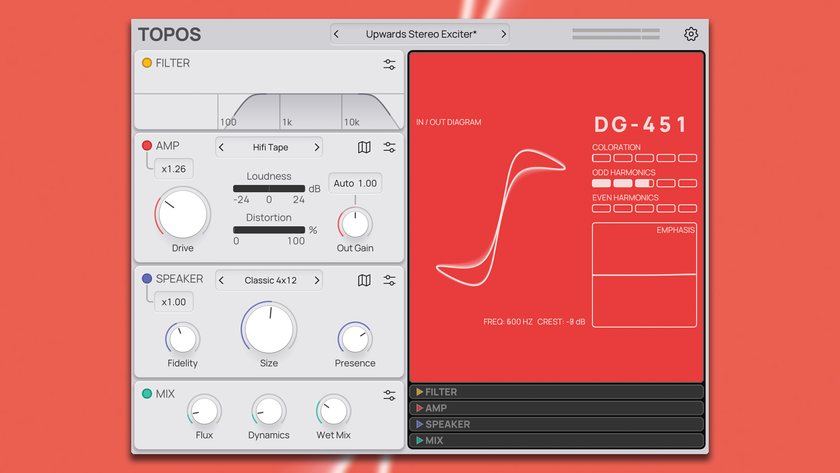
Forever 89 releases Topos, a topographical effects plugin that (quite literally) puts saturation on the map - and there's a free version
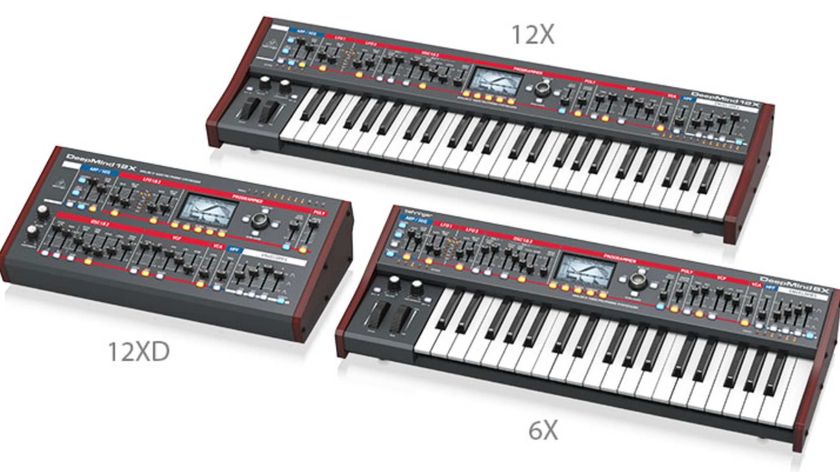
Behringer reveals DeepMind X upgrade for the synth's tenth anniversary - and it's got a new, Juno-inspired paint-job

“We hadn’t rehearsed. We weren’t used to playing acoustic. Even the people from MTV thought it was horrible”: A new Nirvana Unplugged exhibition features not only Kurt Cobain’s $6 million Martin D-18E but also his green cardigan
